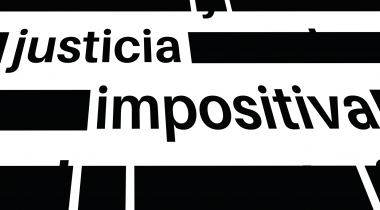
Nick Shaxson ■ TJN unveils its new Financial Secrecy Index

 Today the Tax Justice Network launches the 2015 Financial Secrecy Index, the biggest ever survey of global financial secrecy. This unique index combines a secrecy score with a weighting to create a ranking of the secrecy jurisdictions and countries that most actively promote secrecy in global finance.
Today the Tax Justice Network launches the 2015 Financial Secrecy Index, the biggest ever survey of global financial secrecy. This unique index combines a secrecy score with a weighting to create a ranking of the secrecy jurisdictions and countries that most actively promote secrecy in global finance.
The full press release is here.
The Financial Secrecy Index is here. For the larger jurisdictions you can click on a country to receive a full historical narrative of how that place became a secrecy jurisdiction or tax haven.
Some improvements, but USA is a worry
Most countries’ secrecy scores have improved.
Real action is being taken to curb financial secrecy, as the OECD rolls out a system of automatic information exchange (AIE) where countries share relevant information to tackle tax evasion. The EU is starting to crack open shell companies by creating central registers of beneficial owners and making that information available to anyone with a legitimate interest. The EU is also requiring multinationals to provide country-by-country financial data.
But these global and regional initiatives are flawed and face sabotage by lobbies that have already weakened them. Secrecy-related financial activity risks being shifted to other areas such as the all-important trusts sector, where no serious action is being taken despite promises made by the G8 in 2013, and shell companies, where many secrecy jurisdictions such as Dubai, the British Virgin Islands or Nevada in the U.S. are refusing to open up.
Crucially, even in those areas where there has been progress, developing countries are largely being sidelined: OECD countries are the main beneficiaries.
Our analysis also reveals that the United States is the jurisdiction of greatest concern, having made few concessions and posing serious threats to emerging transparency initiatives. Rising from sixth to third place in our index, the US is one of the few whose secrecy score worsened after 2013.
Switzerland stays at the top of the index and for good reason: despite what you may have heard, Swiss banking secrecy is far from dead, though it has curbed its secrecy somewhat.
The United Kingdom also remains a huge concern. While its own secrecy score is moderate, its global network of secrecy jurisdictions – the Crown Dependencies and Overseas Territories – still operate in deep secrecy and have, for instance, not co-operated in creating public registers of beneficial ownership. The UK has failed to address this effectively, though it has the power to do so.
The full press release contains a range of further details, including a brief country-by-country summary of the top 10 jurisdictions plus the UK; along with FAQs, and contact details for TJN staff who can talk about the FSI.
Related articles

The secrecy enablers strike back: weaponising privacy against transparency
Privacy-Washing & Beneficial Ownership Transparency
26 March 2024

New Tax Justice Network podcast website launched!

El secreto fiscal…tiene cara de mujer: January 2024 Spanish language tax justice podcast, Justicia ImPositiva

Tax Justice Network Arabic podcast #73: ملخص 2023

Get rich cheating in our (educational) tax dodgers version of monopoly

New report on how to fix beneficial ownership frameworks, so they actually work

The Tax Justice Network’s most read pieces in 2023

Overturning a 100 year legacy: the UN tax vote on the Tax Justice Network podcast, the Taxcast



Thank you